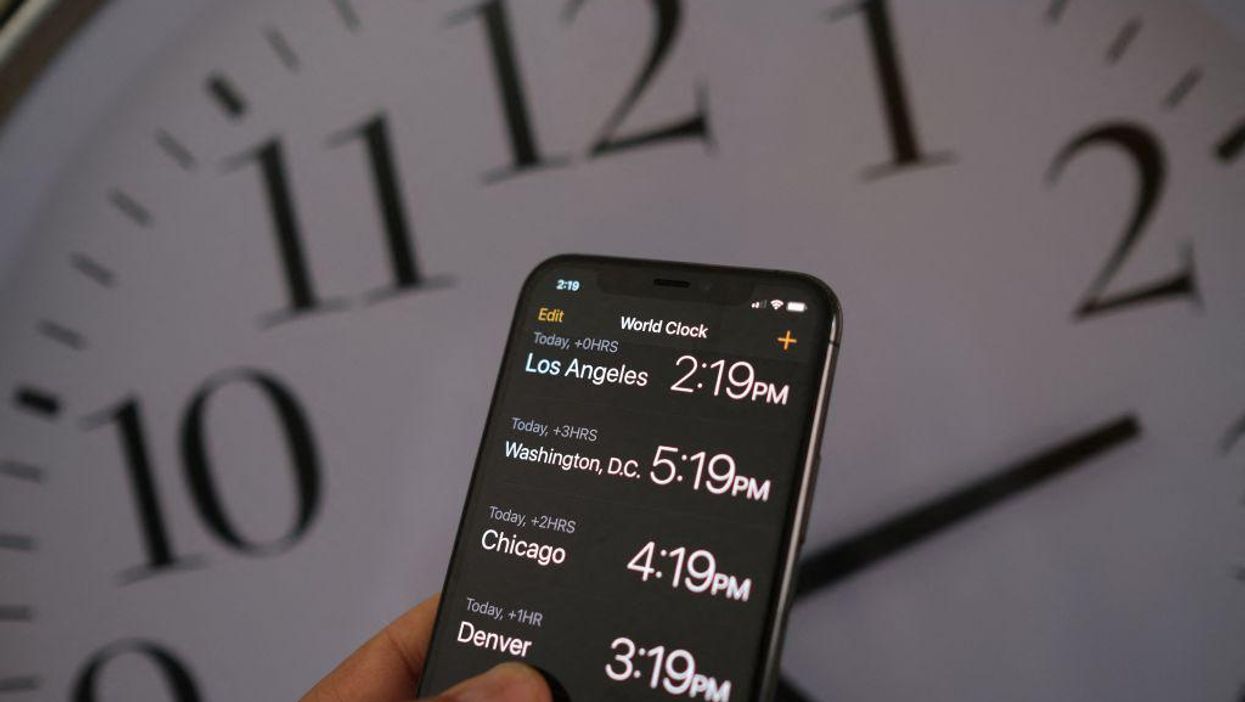
CHRIS DELMAS/AFP via Getty Images

As Congress debates ending the biannual changing of clocks and making daylight saving time permanent, more than a dozen medical, scientific, and civic organizations warn the move could have severe ramifications for the country's health.
In a rare instance of unanimity, the U.S. Senate on Tuesday approved the Sunshine Protection Act, a measure that would result in Americans falling back in November 2022, springing forward in March 2023, and then never resetting their clocks again. For the measure to become law, it still needs to be approved by the House of Representatives and signed by the president.
The move has been heralded for years by many Americans weary of dark winter afternoons or, if not that, then simply the prospect of adjusting their schedules twice a year. Public opinion polling shows that an overwhelming majority of Americans would prefer making permanent the later sunsets that come with being "sprung forward."
But in a stark statement issued this week, the American Academy of Sleep Medicine assessed that Senate lawmakers' hasty decision overlooked potential health risks associated with permanent daylight saving time. In the AASM's view, seasonal time changes should be abolished in favor of a fixed national year-round time. However, the group argues standard time is what should be made permanent.
"An abundance of accumulated evidence indicates that the acute transition from standard time to daylight saving time incurs significant public health and safety risks, including increased risk of adverse cardiovascular events, mood disorders, and motor vehicle crashes," the group cautioned.
Though admitting that "chronic effects" of remaining sprung forward "have not been well studied," the group goes on to conclude in its statement that "daylight saving time is less aligned with human circadian biology."
Permanent daylight saving time, the group argued, "could result in circadian misalignment, which has been associated in some studies with increased cardiovascular disease risk, metabolic syndrome, and other health risks."
As such, "current evidence best supports the adoption of year-round standard time, which aligns best with human circadian biology and provides distinct benefits for public health and safety," the AASM posited.
In a news release, the group noted that its statement was endorsed by more than 20 related organizations, including the American College of Chest Physicians, American College of Occupational and Environmental Medicine, the National Safety Council, Society for Research on Biological Rhythms, the World Sleep Society — and even the National Parent Teacher Association.
On the other hand, proponents of making daylight saving time permanent argue the change would prevent traffic injuries, reduce crime, combat depression, and save energy by reducing the amount of time households use electricity for lighting, among other things.
On the Senate floor, Sen. Patty Murray (D-Wash.), who co-authored the Sunshine Protection Act with Sen. Marco Rubio (R-Fla.), said making daylight saving time permanent is long since overdue.
"No more dark afternoons in the winter," Murray said. "No more losing an hour of sleep every spring. We want more sunshine during our most productive waking hours."
"I’ve said it before and I’ll say it again: Americans want more sunshine and less depression — people in this country, all the way from Seattle to Miami, want the Sunshine Protection Act," she added.
(H/T: Washington Post)